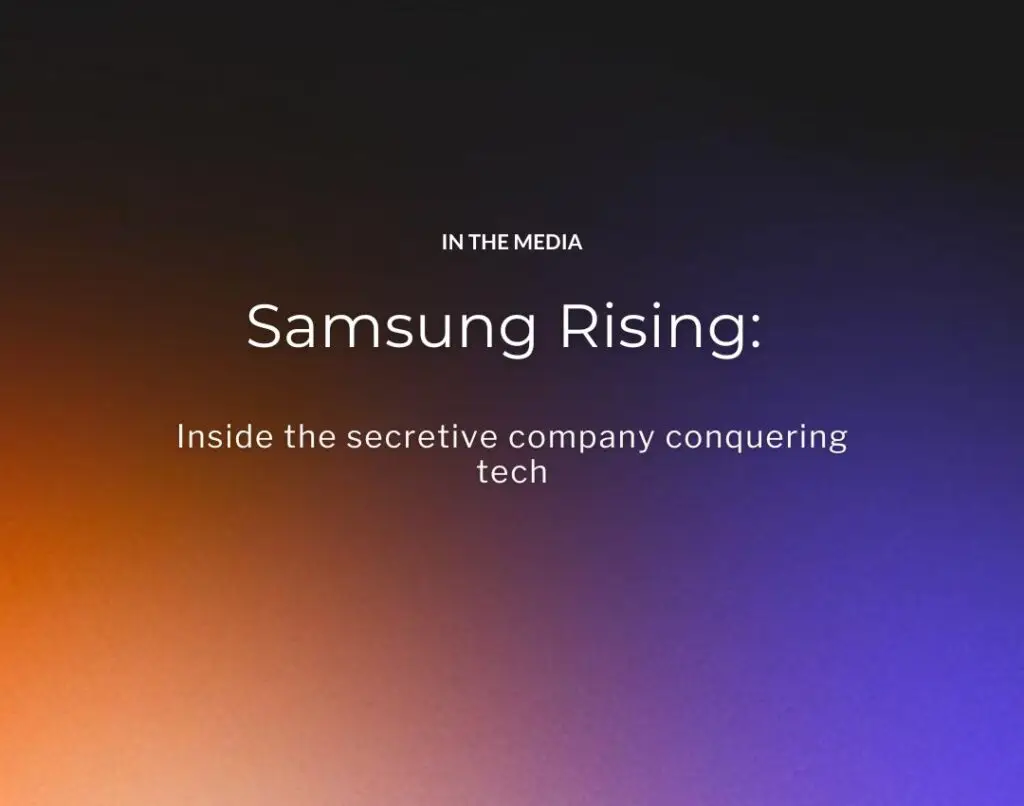The rise of a global tech giant — Geoffrey Cain’s gripping tale of a South Korean dynasty

Geoffrey Cain, a journalist who has reported for The Economist and the Wall Street Journal, does his material proud. Unlike their Silicon Valley counterparts, Asia’s tech champions lack the type of leaders that are sufficiently well known to carry a business biography: no mercurial Steve Jobs or Elon Musk and certainly no college dropouts such as Mark Zuckerberg or Elizabeth Holmes of scandal-ridden Theranos to act as storytelling device.

Instead, Cain marshals his material around episodes and milestones. This allows for a few cliffhanger chapter endings, while also enabling the characters’ foibles to shine through. The dynastic Lees, at various times, display all the idiosyncratic behaviour of Musk and Jobs: from the philosopher-king founder Lee Byung-chul, who tore his napkins in half to save money, through to his aesthete semi-hermit grandson Lee Jae-yong.
The format also throws into relief what is perhaps Samsung’s fatal flaw: an inability to learn from its mistakes, which it is thus condemned to repeat. Various Lees are in and out of the courts, condemned and pardoned, with all the regularity of Musk tweets. Products are still rushed to market before they are ready — witness the breaking foldable phones first launched early last year.
It also highlights the sheer breadth of “the Republic of Samsung” — an omnipresence that stretches beyond South Korea. Samsung overtook then best-in-class Sony in the mid 2000s; it took on Apple — in terms of products and via a protracted and costly patent war — as well as Google. One of the many gems in Samsung Rising is the story of how the company was behind the Oscars selfie posted by Ellen DeGeneres that was retweeted so much it crashed Twitter.
More recently, breakout Oscar-winner Parasite was backed by Lee Mie-kyung, granddaughter of the founder, and more than a bit player in the book. She led Samsung’s efforts to buy into DreamWorks (mirroring Sony’s 1989 Columbia Pictures acquisition); failing, she took a smaller slice for her own part of the empire, CJ Group. There is sweet irony in a movie whose gory finale stems from South Korea’s gaping wealth gap being bankrolled by a part of the country’s biggest chaebol (literally, wealth clan or clique).
Cain knows his material well. A pity, then, that after showcasing his credentials — interviews with 400 people, recipient of certain leaked documents — the book almost immediately plunges into liberal quotes from broadcasters and print media. The opening lines, from a flight passenger whose Samsung Galaxy phone began spewing smoke during the safety demonstration, was from TV; his tale segues into takes from The Verge, Gizmodo and CNN Money.
There are plenty of times when this works; Samsung has after all attracted widespread interest. At other times it is simply puzzling. It does not take an opinion writer from Bloomberg to explain that the merger ratio for a linchpin deal was an utter horror.
Cain’s book also highlights the sheer breadth of ‘the Republic of Samsung’ — an omnipresence that stretches beyond South Korea
There are also a few too many clumsy efforts at inserting himself into the story — a de rigueur requirement for business books these days. “I befriended locals in an effort to understand the Korean people better” is cringe-making and patronising; the constant detailing of meetings “over coffee” or “dim sum in a five-star hotel” starts to become a little formulaic. One feels for the woman who directs him towards a street “with her droopy eyes”.
Read more about Geoffrey Cain’s new book, Samsung Rising at Financial Times
See Also:






